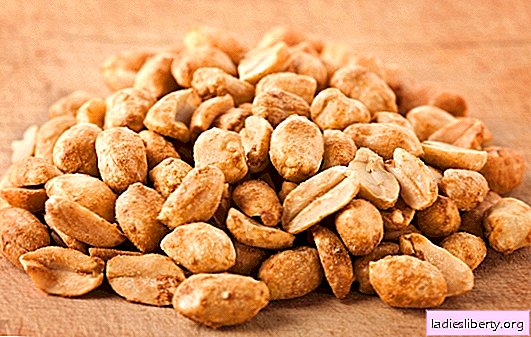
The problem of swelling is faced by almost every third woman during pregnancy. Such a sign, despite the prevalence of the phenomenon, can not be ignored.
Future moms, feeling a certain discomfort from the accumulation of fluid in the tissues, give little importance to the importance of such a symptom, and try to get rid of it as soon as possible. And here in the course are popular recipes and specials. diets, and even diuretic drugs. The use of a diuretic really helps to effectively remove fluid.
But is it always advisable to resort to such cardinal measures?
What is necessary diuretics during pregnancy?
During pregnancy, all organs and systems of a woman have to work with a double load. Fluid demand increases dramatically. The increase in blood volumes, maintaining the required volume of amniotic fluid requires additional fluid intake. However, natural and pathological changes in the body do not always have a positive effect on the water balance, and as a result, swelling appears.
The accumulation of extracellular fluid may be due to:
1. Increasing the size of the uterus. Under the pressure of the growing abdomen, the organs in the abdominal cavity change their location. Small vessels, ureters can be compressed. This is reflected in the ability of the body to remove accumulated fluid.
2. Gestosis. A dangerous condition that pregnant women face in the third trimester. Puffiness may be accompanied by increased pressure, nausea, the presence of protein in the urine, a decrease in hemoglobin.
3. Pathology of the kidney. The main organ that provides the output of fluid from the body in some pathologies does not cope with the main task, and the fluid begins to accumulate in the tissues. Renal edema is manifested by morning swelling on the face.
4. Problems with the heart and blood vessels. Vessels in case of malfunction of the cardiovascular system are unable to properly maintain water exchange with the tissues. The deterioration of lymph flow and blood flow provokes the appearance of puffiness.
5. The accumulation in the body of pregnant sodium. This element attracts fluid. Therefore, the water exchange is disturbed, the incoming liquid is not accumulated by the excretory system, but accumulates in the tissues.
Symptoms of puffiness can occur not only externally. Sometimes the internal organs swell, which at the initial stage is not visually visible, but is reflected in weight indicators.
Edema negatively affects the work of almost the entire body:
• Violation of water exchange unambiguously affects the conductive abilities of blood vessels.
• When the fluid deficit begins, the blood begins to thicken, the heart works in an intensive mode, which is manifested by increased heart rate.
• To compensate for the lack of blood volume in the body, blood pressure rises.
• Impaired blood circulation affects the supply of tissues and baby with nutrients and oxygen.
Do not forget that the swelling affects the state of the vessels of the placenta, and the accumulation of fluid occurs not only in the tissues of the mother's body, but also in the body of the baby.
Therefore, with a strong swelling during pregnancy, the use of a diuretic is simply necessary.
What diuretic during pregnancy can be used?
Diuretics are prescribed during pregnancy only in combination with other drugs. Since swelling in most cases is a symptom, not the cause of some diseases. Treatment is primarily aimed at eliminating the causes of edema.
The diuretic effectively removes accumulated fluid. But his action is temporary. And if you do not affect the main pathology, swelling returns.
When choosing drugs and drugs pay attention to their security. Not all medicines and herbs are allowed to be consumed during pregnancy. And some are even banned, as they can cause significant harm.
Categorically prohibited use medications to reduce the uterus and raise the tone. Such diuretics during pregnancy can cause miscarriage.
The insightful ability of drugs is also taken into account Preference is given to those medicines that are less able to penetrate the placenta and affect the baby.
Even having read the instructions for the preparation, in which the manufacturer necessarily prescribes the possibility and risks of taking a diuretic during pregnancy, one cannot be completely sure of their safety for their own body and baby.
therefore Absolutely forbidden engage in self-selection of a diuretic during pregnancy. The doctor before prescribing diuretics during pregnancy will definitely prescribe a urine test, conduct additional examinations in the form of an ultrasound scan, an ECG, and determine how strong the effect of the drugs should be.
The doctor will carefully assess how much the benefit of a particular diuretic will exceed the potential harm to the fetus.
Synthetic diuretics
Synthetic diuretics are prohibited in the first half of pregnancy when important organs and systems form in the fetus. Drugs such as Spironolactone, Indapamide, Triamterene, Etacrynic acid, Theobromine are banned.
From the second trimester, if absolutely necessary, the doctor may recommend taking hydrochlorothiazide, Lasix, Diacarba. Minimum doses of torasemide are allowed. Preference is given to tablet form. Thus, the active ingredient penetrates the bloodstream more slowly and there is less chance of side effects.
If necessary, the doctor may prescribe an injection or drip injection of synthetic diuretics during pregnancy.
If the effect of such drugs is ineffective, resort to the use of Eufellin. The drug is able to overcome the placental barrier, so it is prescribed as a last resort.
Diuretic plant based
Medicines and herbal preparations are more preferable during pregnancy. They have fewer side effects, they are not addictive and have a beneficial effect on the work of the kidneys and heart.
But it should be remembered that herbs are also a medicine. They have their pharmacological properties, due to which they have a specific effect on the body.
It is not allowed to treat the remedies that contain herbs in the form of parsley, bearberry leaf, horsetail, highlander bird. These plants raise the tone, provoke uterine contraction.
Herbs can, in addition to the diuretic effect, greatly reduce or increase pressure, cause allergic reactions, disrupt the work of the digestive system.
therefore approve the reception of plant diuretics during pregnancy should a doctor. Fitolysin and Canephron are considered safe diuretics during pregnancy.
From herbs, it is recommended to take decoctions and teas on the basis of wild rose, birch leaves, lingonberry leaves, lovage, bearberry.
For pregnant women, renal tea with the content of orthophysophone is suitable. This drink is allowed to use at any time.
What are dangerous diuretics during pregnancy for a child?
Diuretics do not act selectively. The active ingredient can affect the functioning of many organs.
Thus, synthetic preparations of the thiazide group cause:
• a sharp decrease in pressure;
• blood clots and blood clots;
• high blood sugar;
• education in the fetus jaundice, hypokalemia, thrombocytopenia.
Drugs containing spironolactone can provoke hormonal abnormalities, which causes not only developmental disabilities in the baby, but also endangers the pregnancy itself.
Not so harmless and approved drugs. With the rapid loss of urine under the influence of high-speed synthetic drugs, there is a threat of a sharp decrease in pressure, which leads to oxygen starvation of the baby, spasms. Elution of potassium in large volumes affects the work of the heart, muscle tone. There is a threat of thrombosis and placental abruption.
Passion for herbal preparations and preparations also does not lead to good. With the urine from the body are washed out and nutrients. Loss in large quantities of sodium, potassium, magnesium, phosphorus, iron, copper, amino acids affects the metabolic processes and providing the baby with extremely important elements for development.
How to use a diuretic during pregnancy?
When a small swelling appears, doctors do not recommend starting a diuretic during pregnancy right away. In these cases, you can adjust the water balance by simple means:
1. Exclude from the diet salted and smoked dishes. Do not get involved in heavy food that slows down digestion.
2. Reduce salt intake. To do this, you can stop salting dishes during cooking, and apply a method of slightly sticking ready food before consumption.
3. Correct water regime. On the day, try to use a sufficient amount of pure water, distributing it evenly throughout the day. Oddly enough, it is water that is able to stabilize water metabolism and act as a natural diuretic. In the evening hours try to drink less.
4. Add foods with a natural diuretic effect. Cucumbers, watermelons, tomatoes, pumpkin, radish and ginger, pineapple, black currant will come to the rescue.
5. Refuse coffee and strong tea. As a vitamin beverage, you can prepare a decoction of dried fruit, freshly squeezed carrot, pumpkin, apple and citrus juices.
If with the help of a diet it is impossible to get rid of puffiness, they resort to plant-based products. In this case, you must strictly adhere to the dosage. When taking a diuretic during pregnancy in no case can not reduce the amount of water consumption. And in some cases, the doctor may even recommend increasing the amount of fluid in the diet. Rapid dehydration in overdose disrupts electrolyte metabolism and deprives the body of important elements.
By the use of synthetic drugs resorted only for health reasons. Reception of such funds should be controlled by physicians. Therefore, they are rarely prescribed for use at home. Only in the hospital, experienced medical staff will be able to track the effects and side effects of such drugs, and correct the treatment in time.
Listen to the recommendations of your gynecologist. And if the doctor considers it necessary to take diuretics during pregnancy, do not ignore his advice. Properly chosen means and dosage will ease the state during pregnancy and eliminate the adverse effects of edema.











